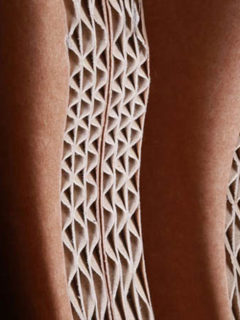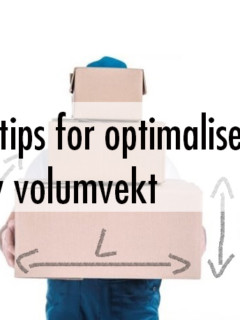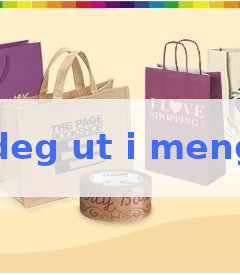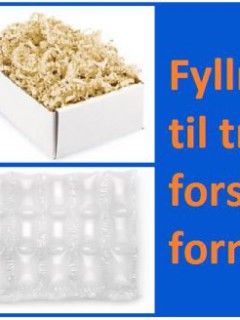Scientists predict that by 2050 there will be more plastic than fish in the oceans, which is a scary thought. Therefore, we think that a guide on the use of paper bags (not plastic bags) can be a good tool for our customers who want to go in an environmentally friendly direction
Paper carrier bags are catching up with plastic bags and that’s good news. They are made from wood, they can be recycled and they can be composted. Not all paper bags are the same though, so we take a closer look at what recycling is and which paper bags you can compost and how (including at home).
Can all paper carrier bags be recycled and are they environmentally friendly?
Virtually all paper bags can be recycled for the simple reason that they are made of paper. They are either biodegradable or made of recycled pulp.
Paper is clearly the winner of environmentally friendly and sustainable packaging. It can be easily recycled as long as it is free of plastic coating, bleach and other contaminants.
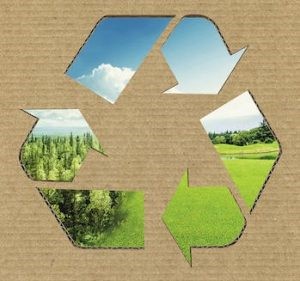
brown paper bags – how to recycle?
These bags can be recycled in many ways. The term “recycled paper” covers a range of forms; from pulp being converted into new bags/products, to shredding and using packing fill in other packaging products – or they can be broken down and/or composted.
Paper bags with a greaseproof layer (or coating) can actually also be recycled as long as the coating is made of organic wax types. If you work with food, for example, you should check this before ordering bags. Bags that are plastic-coated on the inside or treated with chemicals are not so easy to recycle because you have to separate the plastic from the paper. On the other hand, bags treated with polyethylene can be recycled even if the process of separating the materials is a bit more complicated than if the bag is made of pure paper. Recycling bags with some kind of coating is treated as “mixed paper” and therefore cannot be recycled in the same way as pure paper.
Organic waxes, such as soya, can be broken down by micro-organisms, but some waxes are mixed with oil- or petroleum-based additives that can be toxic to micro-organisms. Therefore, it is always necessary to check what type of coating has been used – and this can be a demanding process. Paper bags that have handles made of a material other than paper, for example, may therefore be more difficult to recycle. In such cases, it is necessary to ensure that the handle is made of organic material and attached with organic glue.
That said, coated paper bags are not the big culprits in mixed organic waste. Some bags are coated with plastic (for example milk cartons) and are of mixed materials, but can be recycled – so it pays to get to grips with the composition of your products if you want to be “greener”.
The concept of recycling:
What are “recyclable paper bags”? It simply means that the paper bags are approved to be used for other purposes after you have used them. It’s up to you what journey the bag takes. In our experience, it is thrown away, and thus recycled, or reused for a new project or as packing material.
The Ministry of Climate and Environment’s explanation of the concept of recycling:
“The concept of recovery is used in the Pollution Act, but is not defined in the Act. In several places in the Waste Regulation, recovery is defined as a general concept of the recovery of waste in the form of re-use, material recovery and energy recovery. In the preamble to the Act, it is stated that recovery can take many different forms, and in the broadest sense includes, for example, transformation by composting or use as filling material.”
https://www.regjeringen.no/contentassets/a6b0928eb81d49138f8753a69211d823/no/pdfs/prp201520160089000dddpdfs.pdf
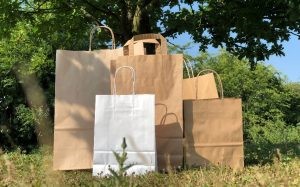
How to recycle paper bags:
Basically all paper bags can be recycled without any kind of pollutants. This makes it a very energy efficient way to save the environment. The most important part of this process is to use a mix of brown and green materials for the decomposition. What do we mean by “brown” and “green” materials? Common brown paper, cardboard and dead leaves in combination with grass clippings and kitchen waste are perfect examples of this and good ingredients as fuel for composting.
So if you want to get in on the trend you can start home composting in your own garden. Fill the bottom with garden waste such as soil, leaves and grass. Then you can add bio- and compostable waste. Food scraps are ideal for this! As the micro-organisms start to work you can add more waste – like the brown paper bags. Be careful not to add too much at a time though. This great mix will eventually give you sweet manure that can be used in the garden.
Conversion to pulp:
To make new paper bags from the old ones, the bags need to be converted to pulp. This is done by shredding the bags, boiling them and turning them into a dense pulp. Then the pulp needs to be pressed to remove all the water so that it binds before new sheets are rolled out. These are ready to become new paper products.
To sum up..
The Community’s focus on the environment means that consumers are making ever greater demands on businesses and expecting them to take a stand. We therefore hope that this text was a small appetite stimulant for your journey on an environmentally friendly sea with more fish than plastic.
Carrier power is a very important topic that is very difficult to master because it has so many aspects. You have to take into account everything from transport to production. It is a difficult but rewarding process to get started with. Make the choices that are important to you and choose the environmental measures that will create value for you, your farm, your customers and not least the environment. Don’t bite off more than you can chew, but start with something simple like packaging – what can you do here?
3 tips:
- Reduce the amount of plastic
- Choose paper or biodegradable packaging
- Choose packaging that is produced in an environmentally friendly way
For more tips on environmentally friendly packaging, contact our packaging experts on 22 51 40 00, post@rajapack.no or via chat at www.rajapack.no – where you can also see our range of paper bags and other environmentally friendly packaging.











